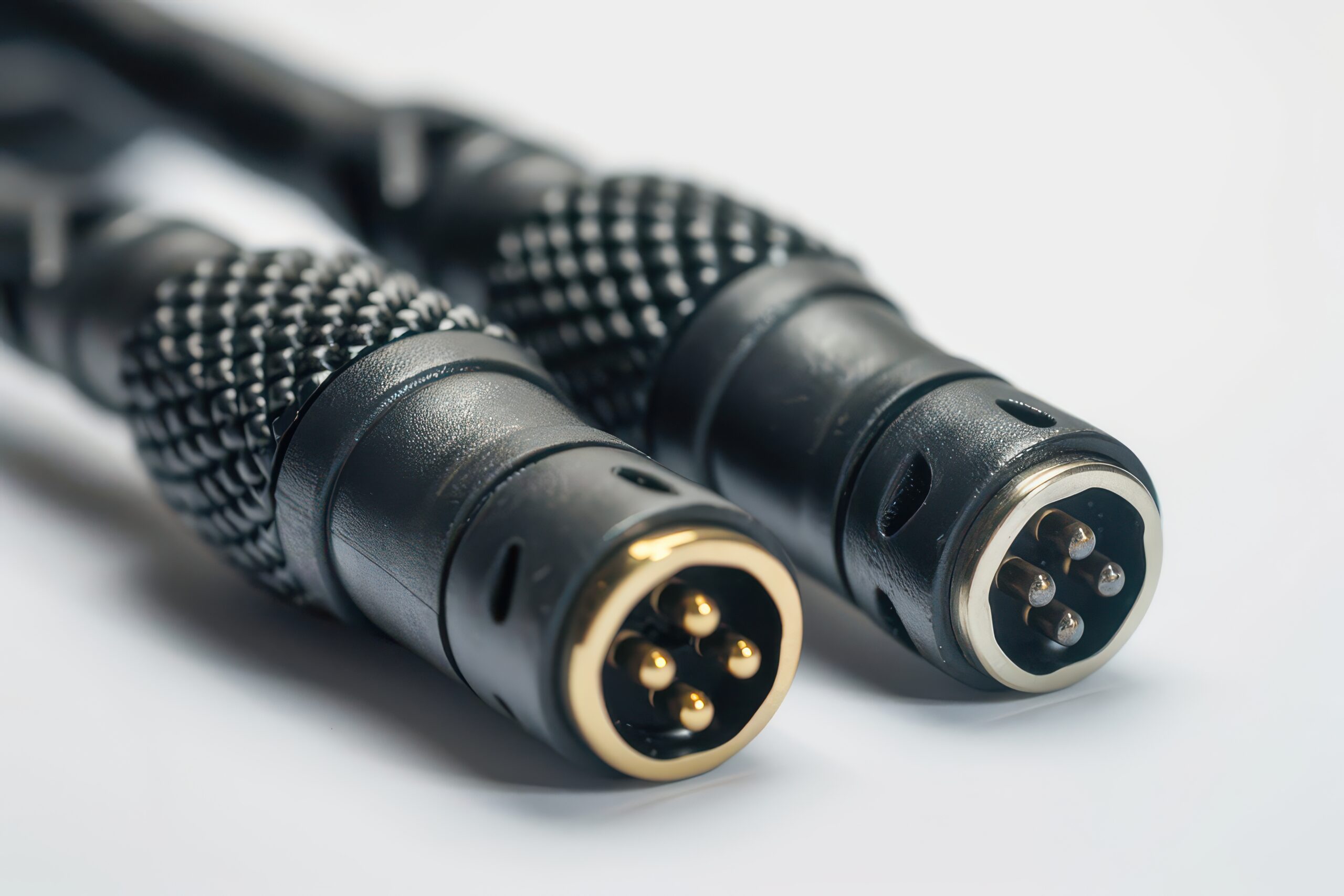Definition and Importance of Military Grade Embedded Box PC
What is a Military Grade Embedded Box PC
A Military Grade Embedded Box PC is a type of embedded industrial computer designed for extreme environments and high-reliability applications.
It typically features a fanless design, full-metal enclosure, and complies with MIL-STD-810 et MIL-STD-461 military certifications, ensuring stable operation under high vibration, extreme temperature variations, and strong electromagnetic interference.
Fonctionnalité | Description |
Hardware Structure | Fanless, aluminum alloy enclosure, heat dissipation fins |
Protection Rating | IP65 / IP67 waterproof and dustproof |
Plage de température | -40°C ~ +85°C wide temperature |
Certifications | MIL-STD-810, MIL-STD-461 |
Service Life | 5–10 years long-term supply |
Differences from General Industrial Computers
While both military grade Embedded Box PCs and standard industrial PCs are built for durability, military grade models have stricter requirements for structural strength, protection level, and long-term stability.
Élément de comparaison | Standard Industrial PC | Box PC embarqué de qualité militaire |
Protection Rating | IP40 ~ IP54 | IP65 / IP67 |
Shock Resistance | Basic protection | MIL-STD-810 high-vibration compliance |
Operating Temperature | 0°C ~ 50°C | -40°C ~ +85°C |
Electromagnetic Protection | Standard EMI compliance | MIL-STD-461 EMC standard |
Supply Cycle | 3–5 years | 5–10 years |
Why It’s Essential in Defense and Critical Industries
A Military Grade Embedded Box PC is more than just hardware—it’s the core computing platform for mission-critical operations and key infrastructure.
In defense operations, it may serve as the navigation system for unmanned vehicles (UAV/UGV/USV); in energy and transportation industries, it can be used for offshore platform monitoring or intelligent traffic control.
Key advantages include:
- Mission-Critical Reliability: Equipment failure could directly compromise operational safety.
- Extreme Environment Stability: Designed for deployment in maritime, desert, or high-altitude conditions.
- Long-Term Supply & Maintenance: Ensures up to 10 years of repairability and spare parts availability
Product Features and Technical Specifications
Extreme Environmental Adaptability
Military Grade Embedded Box PCs use full-metal enclosures and a fanless design with high-efficiency passive cooling, allowing them to operate within a -40°C to +85°C wide temperature range.
They comply with IP65/IP67 waterproof and dustproof ratings et MIL-STD-810 shock and vibration standards, enabling long-term stable operation in harsh environments such as battlefields, offshore platforms, deserts, and polar regions.
Specification | Parameter |
Protection Rating | IP65 / IP67 |
Operating Temperature | -40°C ~ +85°C |
Shock Resistance Standard | MIL-STD-810 |
Corrosion Resistance | Salt fog, humidity, chemical corrosion protection |
Cooling Design | Fanless passive cooling, aluminum alloy casing |
High Performance and AI Support
Modern military and industrial applications require real-time processing of massive data, making computing power a core advantage of Military Grade Embedded Box PCs.
They can be equipped with high-end CPUs (Intel Core / Xeon / ARM architecture) et dedicated GPUs (NVIDIA / AMD), supporting AI inference and edge computing for applications such as image recognition, target tracking, and intelligent decision-making.
Hardware Configuration | Technical Features |
UNITÉ CENTRALE | Intel Core i7/i9, Xeon, or ARM |
GPU | NVIDIA RTX / Quadro, AMD Radeon |
Accélération de l'IA | Supports CUDA, TensorRT, OpenVINO |
Mémoire | DDR4/DDR5 high-speed memory, up to 128GB |
Stockage | NVMe SSD / SATA SSD, RAID support |
Diverse I/O and Communication Interfaces
Military Grade Embedded Box PCs come with a wide range of Ports E/S et communication modules to support multiple operating platforms.
They feature multiple LAN ports (including fiber), serial ports (RS-232/422/485), USB 3.2, CAN Bus, and optional 5G, Wi-Fi 6, and satellite communication for reliable data transmission in battlefields or remote regions.
Interface Type | Specification |
Networking | 4–8 Gigabit LAN ports, fiber support |
Serial Communication | COM x 4–8 (RS-232/422/485 switchable) |
USB | USB 3.2 / 2.0 multiple ports |
Wireless Communication | 5G, Wi-Fi 6, Bluetooth 5.2 |
Special Interfaces | CAN Bus, GPIO, M.2 expansion slot |
Satellite Communication | Integrates Iridium / Inmarsat modules |
Application Fields and Use Cases
Defense and Military Applications
Military Grade Embedded Box PCs are widely used in battlefield communication, command and control, reconnaissance, and surveillance systems.
They can be installed in armored vehicles, unmanned ground vehicles (UGV), unmanned aerial vehicles (UAV), and unmanned surface vessels (USV) to provide real-time data processing and secure encrypted transmission.
Scénario d'application | Fonction |
Armored and Military Vehicles | Tactical data processing, navigation, and communication |
Unmanned Vehicles (UAV/UGV/USV) | Autonomous navigation, image recognition, mission control |
Centres de commandement | Real-time battlefield information integration and decision support |
Reconnaissance & Surveillance Systems | High-resolution image processing and transmission |
Aerospace and Maritime Industries
In aerospace and maritime sectors, Military Grade Embedded Box PCs are used for flight control, navigation, and vessel monitoring.
Their shock resistance, salt fog resistance, and moisture protection ensure long-term stability in high-altitude flights or humid ocean environments.
Scénario d'application | Fonction |
Military and Civil Aircraft | Flight data processing, avionics system control |
Naval Vessels | Radar data processing, navigation control |
Ports and Maritime Operations | Cargo monitoring, port automation control |
Offshore Platforms | Ocean observation, oil & gas platform monitoring |
Energy and Intelligent Transportation
In the energy and transportation sectors, Military Grade Embedded Box PCs act as control hubs for critical data processing and real-time monitoring.
They are used in oil and gas drilling platforms, wind farms, and mining operations, as well as in intelligent transportation systems (ITS), high-speed rail, and metro automation.
Scénario d'application | Fonction |
Oil, Gas & Mining | Real-time monitoring, equipment automation control |
Offshore Wind Farms | Wind turbine operation data analysis and control |
Intelligent Transportation | Traffic flow monitoring, automated traffic light control |
High-Speed Rail & Metro | Vehicle control, operational monitoring |
Global and Asia-Pacific Market Trends
Market Growth Drivers
The demand for Military Grade Embedded Box PCs has grown rapidly in recent years, driven by increased defense budgets, infrastructure upgrades, and the expansion of AIoT and edge computing applications.
Market research indicates the global military embedded computer market will maintain a 6%–8% CAGR over the next five years, with the Asia-Pacific region leading growth.
Region | Growth Drivers | Projected CAGR |
North America | Stable defense budget growth, intelligent military systems | 5%–6% |
Europe | NATO member states upgrading defense systems | 4%–5% |
Asia-Pacific | Defense modernization, high-speed transportation, smart cities | 8%–10% |
Middle East & Africa | Energy exploitation, security monitoring needs | 6%–7% |
Technological Development Trends
Technological advancements are a key driver for market growth. Military Grade Embedded Box PCs are increasingly integrating:
- AI and Edge Computing: Enhancing real-time data analysis and autonomous decision-making
- 5G and Satellite Communications: Improving battlefield and remote data transfer efficiency
- Modular Design: Reducing maintenance costs and extending service life
- Low-Power, High-Performance Processors: Boosting performance while extending battery life
Technology Trend | Impact |
AIoT Integration | Real-time image recognition and smart control |
5G Communication | High-speed, low-latency data transfer |
Modular Architecture | More flexible upgrades and maintenance |
Low-Power Processors | Lower heat generation and energy consumption |
Key Competitors and Technological Advantages
Major international and regional brands in the military-grade embedded computer space include Advantech, Kontron, Crystal Group, and AAEON.
Competitive advantages center on:
- Protection level and certification completeness
- CPU/GPU processing power
- Long-term supply and after-sales service
- Custom design and system integration capabilities
Brand | Technological Advantages |
Advantech | Broad product range, AI edge computing integration |
Kontron | Highly modular design, aerospace specialization |
Crystal Group | High protection levels, customized military solutions |
AAEON | Embedded AI computing platforms, low-power designs |
FAQ — Frequently Asked Questions
How is a Military Grade Embedded Box PC Different from an Industrial PC?
The main differences are protection level, environmental resilience, and long-term stability.
Military versions typically feature IP65/IP67 waterproof and dustproof ratings, MIL-STD-810 shock resistance, MIL-STD-461 EMC protection, and can operate in -40°C to +85°C.
They also offer longer supply cycles (up to 10 years) for defense and critical infrastructure.
What Specifications Should I Consider When Choosing a Military-Grade Computer?
Key factors include:
- Tolérance environnementale: Temperature range, IP65+ protection, MIL-STD-810 compliance
- Processing Power: CPU/GPU specs, memory capacity, AI acceleration support
- Communication Interfaces: LAN ports, COM ports, 5G/satellite support
- Long-Term Availability: Product lifecycle and spare parts guarantee
- Security Features: TPM 2.0, hardware encryption, anti-tamper design
Specification Category | Recommended Standard |
Protection Rating | IP65 / IP67 |
Shock Standard | MIL-STD-810 |
Processing Power | Intel Core i7/i9, GPU support |
Wireless Communication | 5G, Wi-Fi 6, satellite |
Sécurité | TPM 2.0, hardware encryption |
Can Military Grade Computers Be Used in Civilian Industries?
Yes, Military Grade Embedded Box PCs are also ideal for civilian industries requiring high reliability and long-term stable operation, such as:
- Intelligent transportation systems (ITS)
- Offshore wind energy and resource extraction
- High-speed rail and metro control systems
- Mining and polar scientific research
Beyond Info System’s Military Grade Embedded Computer Solutions
Product Series and Specifications Overview
Beyond Info System specializes in high-reliability, long-lifecycle Military Grade Embedded Box PCs designed for defense, aerospace, energy, and transportation.
All products are MIL-STD-810 shock/vibration et MIL-STD-461 EMC certified, support -40°C to +85°C wide temperature operation, and offer IP65/IP67 protection ratings.
Product Series | Protection Rating | Processing Platform | Special Features |
B-MIL X1 | IP65 | Intel Core i7 / i9 | AI acceleration, 5G module |
IP67 complet | Intel Core i5 | 9~36V wide-range isolative | |
IP67 complet | Intel Core i5 | Low power, edge computing | |
IP67 complet | NVIDIA GPU | Image recognition, target tracking |
Success Stories
- Defense Unmanned Ground Vehicle (UGV) Control System
- RML-S67-TGS used as navigation and mission computing core, stable in high-heat and high-vibration desert conditions.
- Port Automation Monitoring
- FBX-T7E deployed for cargo monitoring and vessel dispatching, integrating fiber and 5G communication.
- Offshore Wind Farm Monitoring
- FBX-T7E installed on offshore turbines, low-power design enables long-term stable operation with real-time analytics.
After-Sales and Long-Term Supply Commitment
Beyond Info System not only delivers high-quality Military Grade Embedded Box PCs but also ensures 5–10 years of long-term supply et real-time technical support, including:
- Custom design services (hardware and firmware adjustments)
- Global warranty and repair centers
- Software updates and security patches
- 24/7 customer technical support



